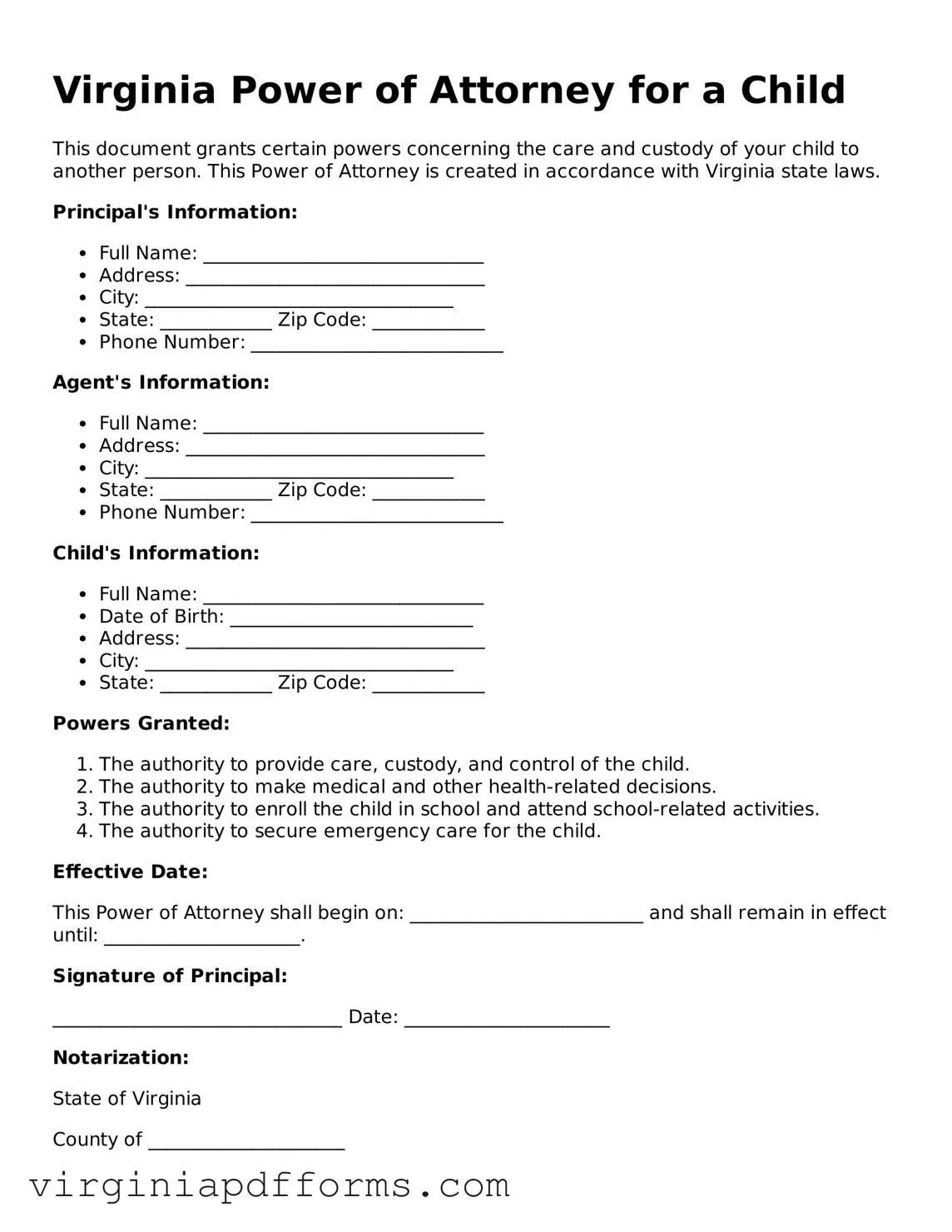Attorney-Approved Virginia Power of Attorney for a Child Document
The Virginia Power of Attorney for a Child form is a legal document that allows a parent or legal guardian to grant another adult the authority to make decisions on behalf of their child. This arrangement can be particularly useful in situations where the parent is temporarily unavailable, such as during travel or medical emergencies. By completing this form, parents ensure that their child's needs are met while they are away.
Access My Document Now

Attorney-Approved Virginia Power of Attorney for a Child Document
Access My Document Now

Access My Document Now
or
Free Power of Attorney for a Child File
Need this form wrapped up fast?
Finish Power of Attorney for a Child online — edit, save, download without effort.